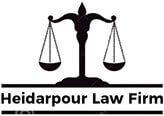Understanding Your Rights Against Debt Collector Calls

It’s no secret that being in debt can be stressful and overwhelming. But what’s even worse is receiving endless calls and letters from debt collectors. Their tactics can be intimidating, rude, and sometimes even illegal.
The good news is that you have rights when it comes to debt collector calls. Whether you’re dealing with debt collectors for the first time or have been for a while, it’s important to know your rights to protect yourself from unfair and abusive collection practices.
The Fair Debt Collection Practices Act (FDCPA)
The Fair Debt Collection Practices Act is the main federal law that outlines the rules debt collectors must follow. According to this law, debt collectors cannot harass or abuse you, use false or misleading statements, or threaten you with legal action they cannot take. Additionally, debt collectors must identify themselves when calling, provide information about the debt they are collecting, and give you the right to dispute the debt.
What To Do When A Debt Collector Calls
The first thing to do when a debt collector calls is to stay calm and make sure you are speaking with a legitimate debt collector. Ask for their name, the name of their company, and their address and phone number. Once you’ve confirmed that they are a legitimate debt collector, get the details of the debt they are trying to collect.
Make sure to take notes of everything said during the call, including the date and time, the names of the people you spoke with, and their phone numbers. If the information they provided seems incorrect or you don’t recognize the debt, you have the right to dispute the debt and ask for verification.
Your Rights To Protection Under State Law
In addition to the FDCPA, many states have their own laws and regulations that protect consumers against abusive collection practices. These state laws may give you additional rights, such as protection against wage garnishment or the right to choose how to pay off your debt. You should research the debt collection laws in your state to see if there are any additional protections available to you.
How To Stop Debt Collector Calls
If you’re tired of receiving constant debt collector calls and want to put an end to them, there are a few steps you can take. First, send a letter to the debt collector requesting that they stop contacting you. This is known as a cease and desist letter, and once the collector receives it, they are legally required to stop contacting you. You can also speak with an attorney who specializes in consumer law to help you navigate the legal process of putting an end to debt collector calls.
What To Do If A Debt Collector Breaks The Law
If you think that a debt collector has infringed upon your rights according to the FDCPA or state law, it is crucial to take appropriate measures. One option is to file a complaint with the Consumer Financial Protection Bureau (CFPB). You can also contact an attorney who specializes in debt collection cases to help you take legal action against the debt collector.
Dealing with debt collectors can be a stressful experience, but it’s important to remember that you have rights. The Fair Debt Collection Practices Act and state laws protect you from abusive collection practices and give you the right to dispute debts you don’t recognize. If you’re tired of receiving constant calls and letters from debt collectors, there are steps you can take to put an end to them. Remember, you are entitled to fair treatment under the law, and you should never tolerate abusive or illegal collection tactics from debt collectors.
For further assistance, contact our legal experts at Heidarpour Law Firm. We are a law firm that specializes in protecting the rights of those who are receiving incessant, unwanted calls from various organizations, including debt collection agencies.
